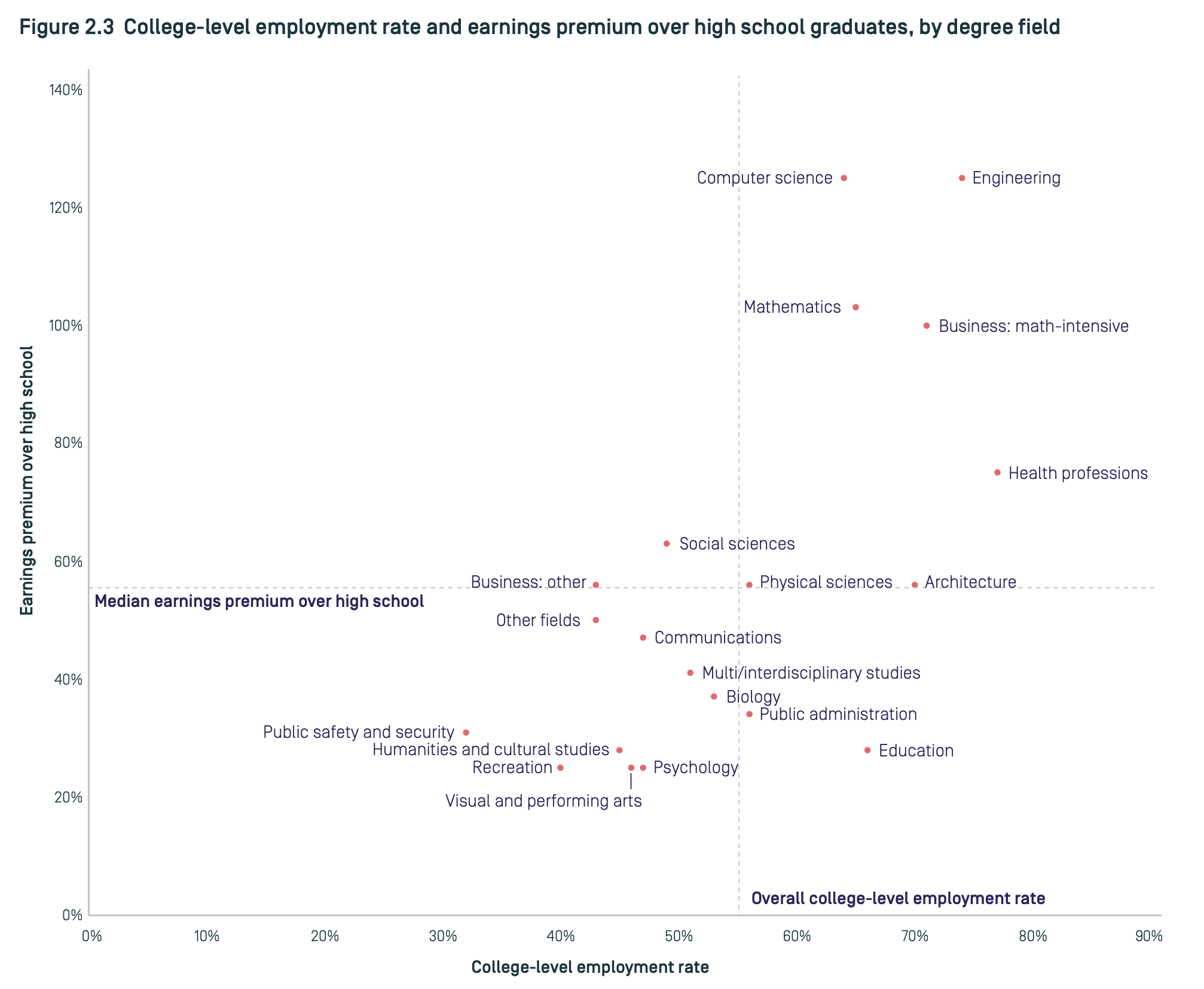(2024-02-22) Talent Disrupted: College Graduates, Underemployment, and the Way Forward
Talent Disrupted: College Graduates, Underemployment, and the Way Forward. Most people enroll in college in large part because they believe it will provide the knowledge and skills they need to secure a good job and join or remain in the middle class, while employers often rely on colleges as a principal supplier of professional talent. However, college is not a guarantee of labor market success. While the typical college graduate continues to fare substantially better in the labor market than workers with no more than a high school education, a sizable share of graduates do not experience the economic outcome they expected from earning a bachelor’s degree. Among workers who have earned a bachelor’s degree, only about half secure employment in a college-level job within a year of graduation, and the other half are underemployed. (under-employment)
Overall, 52 percent of graduates are underemployed a year after graduation. Even a decade after graduation, 45 percent of graduates are underemployed.
The first job after graduation is critical
Underemployment carries a heavy financial cost
Underemployment rates vary greatly by college major. Graduates with degrees that involve a substantial amount of quantitative reasoning, such as computer science, engineering, mathematics, or math-intensive business fields (e.g., finance, accounting), experience the lowest underemployment rates (i.e., less than 37 percent), especially right out of college. Underemployment rates also are low for those who study education or health programs (e.g., nursing). Graduates with degrees in public safety and security, recreation and wellness studies, or general business fields (e.g., marketing) tend to face much higher levels of underemployment (i.e., 57 percent or higher).
STEM is not a silver bullet... those with a degree in a life sciences field (e.g., biology) tend to face higher underemployment rates.
Students who major in fields with high college-level employment rates overall—such as health professions and math-intensive business fields—face less risk regardless of whether they attend a selective (College Ranking) or inclusive institution.
There is a strong connection between internships and college-level employment after graduation
Institution type, race/ethnicity, gender, and geography matter with respect to post-graduation employment outcomes, but typically not as much as college major or internships.

Edited: | Tweet this! | Search Twitter for discussion

 Made with flux.garden
Made with flux.garden